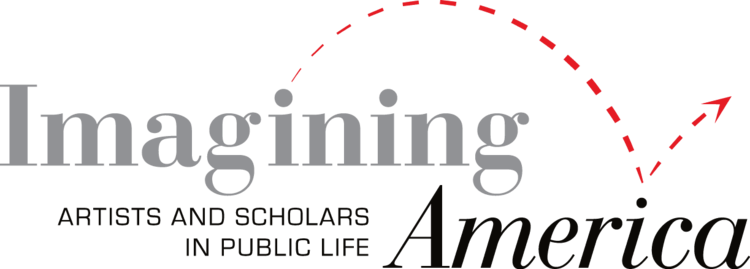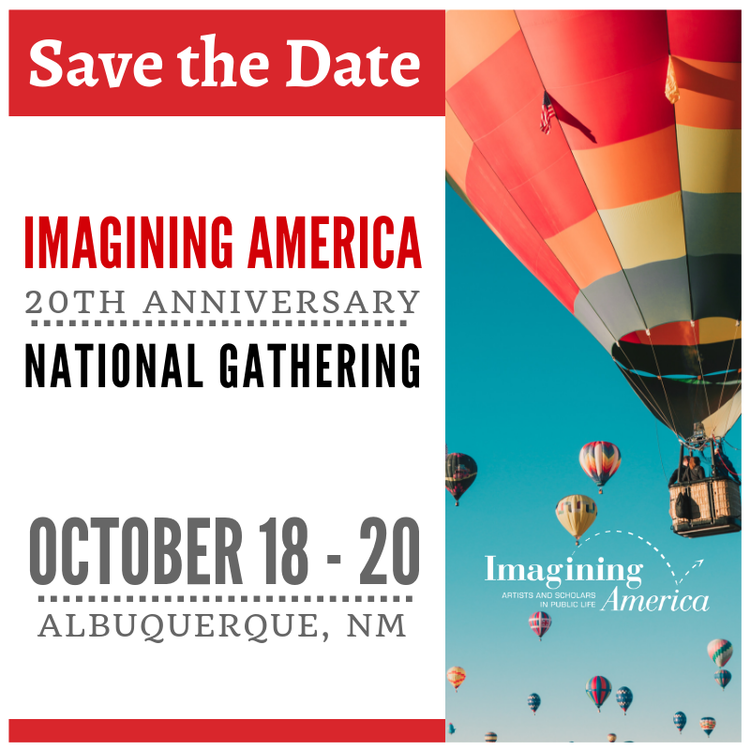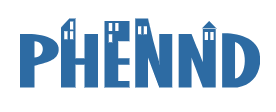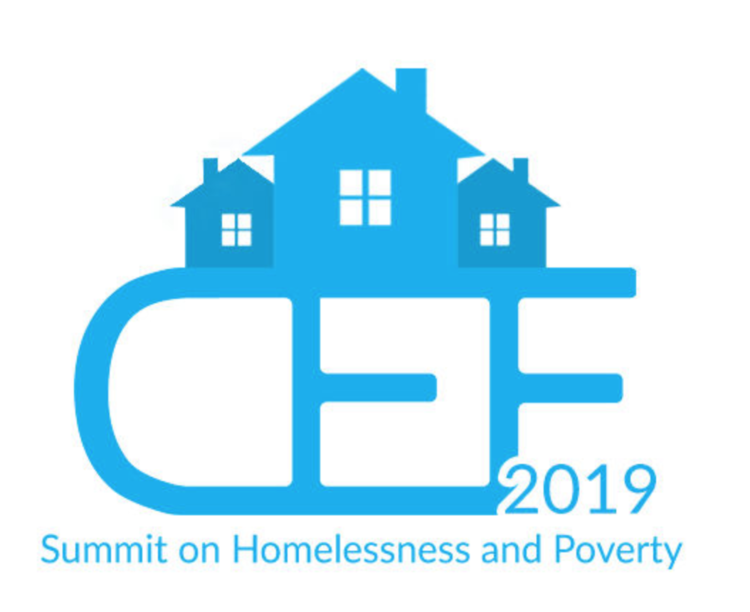The Teaching for Democracy Alliance website has a wealth of resources related to talking to students about voting and being an informed citizen.
Articles, new toolkits or other resources related to CES.
The Teaching for Democracy Alliance website has a wealth of resources related to talking to students about voting and being an informed citizen.
George Washington University appeared on the Washington Monthly's List of America's Best Colleges for Student Voting. The list includes 80 institutions. Notably, none of GW's market basket schools appear on this list.
Congrats to GW and particularly to the GW Votes program for this success.
Please do forward your students to TurboVote, an online platform available to the GW community which provides timely notifications on upcoming elections wherever users are registered to vote, as well as non-partisan information about local, state, and federal candidates.
The Stanford University Libraries, in partnership with Campus Compact and other supporters has curated an online Service-Learning History Project archive, curated by Tim Stanton, Seth Pollack and Josh Schneider. The archives contains downloadable interviews, films, and documents, telling the story of the emergence and institutionalization of service-learning from over the last fifty years.
Imagining America recently received a $500,000 grant from the Andrew W. Mellon Foundation for their Leading and Learning Initiative. The goal of the project is to shift institutional culture in higher education toward greater support of public scholarship in the humanities, the arts, and design.
This three-year initiative will have two primary outcomes:
Each semester the Nashman Center hosts the Symposium on Community Engaged Scholarship, an afternoon for students, faculty, and community partners to share and reflect upon their experiences. During the Showcase Session, student presentations describe the nature of their community engagement during the semester, in terms of:
To prepare a Showcase Session presentation, it is important to keep in mind a few key aspects of the context of this portion of the Symposium.
During this part of the Symposium, the audience flows through presentations much like an art gallery or research day poster session.
 You will not have a sit-down audience. People come and go. We advise you to carefully prepare a 1-2 minute “pitch” presentation, which you will give many times. The goal of this pitch is to make your audience want to stay longer to ask follow-up questions and hear more about your project. Spend some time thinking about how to summarize your experience, while highlighting the community impact, what you learned, and what you think it is important for the general public to know about the issues your project addressed.
You will not have a sit-down audience. People come and go. We advise you to carefully prepare a 1-2 minute “pitch” presentation, which you will give many times. The goal of this pitch is to make your audience want to stay longer to ask follow-up questions and hear more about your project. Spend some time thinking about how to summarize your experience, while highlighting the community impact, what you learned, and what you think it is important for the general public to know about the issues your project addressed.Leverage visual aids to get audience attention and make your points memorable.

Students use posters, powerpoint slides, handouts, art, or other visual aids to be able to quickly and memorably make their points. In some cases, such as for engineering or interior design courses, students bring the actual product they designed for their community partner.
For students using slides on a laptop: photographs, maps, and graphs have greater impact than bullet points or text. You will need to bring your own laptop, and make sure its battery is fully charged.
Consider ways to engage the audience in active participation.

If your findings are surprising, ask your audience what they think or expect before revealing the results. Take a poll, indicating the results in real time using a poster with tally marks. If there is a way the general public can make a difference on the issue or with the community you worked with, provide information about that (what information can they share with their elected representatives? where can they go to do volunteer service?)

Imagining America, an organization dedicated to promoting community engagement and service-learning partnerships. Below are some highlights from their March 2019 newsletter.

The Imagining America National Gathering will take place on October 18-20th in Albuquerque, NM. The call for participation will be released in April. For more information on early hotel booking, click here.
The National Women’s Studies Association is offering scholarship for graduate students, with applications due by tomorrow night (March 31). If you know a graduate student that is currently a member and interested in scholarship opportunities, refer them here for more opportunities.
Check out IA Faculty Director Erica Kohl-Arenas as a guest in the Niskanen Center's recent Science of Politics podcast and speaks on how philanthropy diverts social movements. Click here for the podcast site, along with a transcript.
The DC Area Educators for Social Justice are hosting several upcoming events of interest to the Nashman family. This group is primarily focused on K-12 educators, but their events are open to all.
Late April-Early June
Educators for Equity invites D.C. area educators to participate in a book club to read and discuss We Want to Do More Than Survive: Abolitionist Teaching and the Pursuit of Educational Freedom by Bettina L. Love over three sessions. All three sessions will occur on weekday evenings, with one in late April, an author talk with Bettina Love in May, and a final session in early June. The group prefers participants who can attend all three sessions.
Saturday, April 13
This teach-in will be held at Howard University, and include hands-on workshops with lessons on Reconstruction that can be used in middle and high school classrooms, presentations on key aspects of Reconstruction history with a focus on education and the law, and an introduction to a student project to identify and give visibility to Reconstruction sites in the area.
Link here for more information and to register
Wednesday, April 24th, 6:30PM-9:00PM
Toldson is a professor of Counseling Psychology at Howard University and will be discussing his new book, No BS (Bad Stats): Black People Need People Who Believe in Black People Enough Not to Believe Every Bad Thing They Hear about Black People.
Inside Higher Ed had a nice piece this week by a graduate student encouraging others to get involved in their local communities, in particular using their graduate level learning to support local government. We encourage you to share it with your students.
“Campus Compact’s 2018-2019 webinar series takes the great and varied work happening on the ground around the country and brings it straight to your desk. Topics touch on issues of relevance to faculty, staff, students, and their partners in education and community building. Be sure to tune in to each session for information, tools, and resources to support and inspire you.”
The 2018-2019 webinar series is being offered free of charge, but all attendees must register: https://compact.org/webinarseries/
MARCH 5
3 P.M. ET
Exploring the Connection: Community engagement and college completion
Colleges and universities face the significant challenge to help students from all backgrounds enter and complete college in a timely manner. This webinar will highlight the potential that community engagement offers to increase college completion rates, using specific research studies that have contributed to the growing body of evidence that connects community engagement with student success for all students.
Video of each month’s webinar so far this year is available here: https://compact.org/webinarseries/
This professional development opportunity is offered as a pre-conference event, preceding the Engagement Scholarship Consortium Annual Conference: October 6-7, 2019, Denver, Colorado.
“This intensive professional development program provides advanced doctoral students and early career faculty with background literature, facilitated discussion, mentoring, and presentations designed to increase their knowledge and enhance their practice of community engaged scholarship. Participation in the Emerging Engagement Scholars Workshop (EESW) is limited and interested applicants must be nominated to be considered for this workshop.” For more information: https://engagementscholarship.org/networks-partnerships/esc-partnerships/emerging-engagement-scholars-workshop
Imagining America (artists and scholars in public life, https://imaginingamerica.org) is launching a new initiative, an online “teaching and learning circle.” The first program of this initiative is a webinar, offered on March 13th at 1pm EST.
”Our first webinar will feature critical dialogue and creative group work with Kush Patel (2016-2018 IA PAGE Co-Director) and Mallika Bose's (Associate Professor of Landscape Architecture at Penn State) "Organizing Against Violence" project. The “Organizing Against Violence” pedagogy project was initiated at the 2018 IA National Gathering in Chicago, IL. The aim of Patel and Bose’s project is to create a network of critical pedagogues, engage in collective writing, and co-create a toolkit for distribution through Imagining America and related media. In the upcoming webinar, participants will reflect on their teaching practice and its relationship to the interconnected violence of colonialism, capitalism, and patriarchy within affiliated institutions and communities. The webinar will involve live group writing, where participants will draft brief position statements to unpack their own institutional biographies and approaches to teaching, learning, and community engaged practice.”
Registration is now open to IA members and individuals interested in joining the IA network. For more information please contact Erika Prasad, Associate Director of Membership and Development, at eaprasad@ucdavis.edu.

The new PHENND (Philadelphia Higher Education Network for Neighborhood Development) newsletter is out and features some interesting opportunities.
The 30th Anniversary PHENND conference will take place on April 1-3 and is on the subject of “Trauma + the Arts: Mobilizing Anchor Institutions.” For more information and tickets, click here.
New resources highlighted in the newsletter include a new article about gauging college’s success in enrolling low-income students, an article on high school civic engagement, and a new podcast episode about publicly engaged artists, designers, scholars, and community members share their life and work. There is also a webinar on the topic of civic dialogue, which you can register for here.

The Community Empowerment Fund, which is a student organization that uses relationship-based support to assist community members to work towards their housing, employment, and financial goals, will be hosting the 2019 Summit on Homelessness and Poverty from March 1-3, 2019, in North Carolina.
For more information, you can visit the site for the Summit on Homelessness and Poverty or look at their website here. Last year, students at Brown University held the first inaugural Summit on Homelessness and Poverty. In doing so, they brought together a coalition of student organizations from across the country dedicated to dismantling systems that perpetuate hunger, homelessness, and poverty. This year, Duke and UNC will be hosting the Summit.
You can register here. They can also provide transportation/accommodation scholarships for students who might have economic barriers to attending the conference. Be sure to tell your students about this amazing opportunity!
If you have students in your undergraduate or graduate courses who would be a great fit for positions at Nashman (including federal work study) please have them apply!
Students access the application here 2019-2020 Nashman Center Student Leader Application and can find the job descriptions here: Documents tab on GWServes
Flyer is also attached here for use on Blackboard or in your department newsletter.

New semester-new learning opportunities about the social determinants of health in DC!
Check out the first four in a series of 8 mini podcasts from the Rodham Insititute https://anchor.fm/rodham-diana-hla about Health Equity in DC. They run about 7 minutes long and have interviews with various academic and community leaders on each of the Social Determinants of Health.